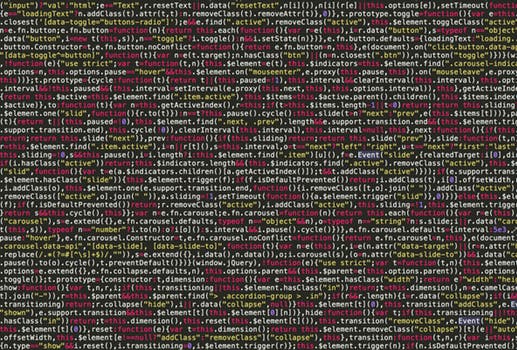TheDeveloperBlog.com
C-Sharp | Java | Python | Swift | GO | WPF | Ruby | Scala | F# | JavaScript | SQL | PHP | Angular | HTML
Golang Replace String Examples: Replacer, NewReplacer
Use strings.Replace, in the strings package, to modify strings. Call NewReplacer.Argument 1: This is the string we want to perform replacements upon. The strings.Replace func returns a modified version of this string.
Argument 2, 3: The second 2 arguments are the before and after strings. We want to exchange "cat" with "dog."
Argument 4: The final argument is the occurrence count to replace. We pass -1 as the occurrence count, so all instances are replaced.
Golang program that uses strings.Replace method
package main
import (
"fmt"
"strings"
)
func main() {
value := "Your cat is cute"
fmt.Println(value)
// Replace the "cat" with a "dog."
result := strings.Replace(value, "cat", "dog", -1)
fmt.Println(result)
}
Output
Your cat is cute
Your dog is cute
Tip: Use the value -1 to mean "global replace" and a positive integer to replace a certain number of matches.
Golang program that uses Replace, count argument
package main
import (
"fmt"
"strings"
)
func main() {
value := "bird bird bird"
// Use a positive number to indicate max replacement count.
result := strings.Replace(value, "bird", "fish", 1)
fmt.Println(result)
}
Output
fish bird bird
Tip: The arguments to NewReplace are in the form of before and after strings, one after another, in pairs.
Replace: We invoke Replace() on the Replacer to apply all strings replacements. In this example, three strings are replaced.
Golang program that uses Replacer
package main
import (
"fmt"
"strings"
)
func main() {
value := "bird, cat and fish"
// Create replacer with pairs as arguments.
r := strings.NewReplacer("bird", "dog",
"cat", "lion",
"fish", "monkey")
// Replace all pairs.
result := r.Replace(value)
fmt.Println(result)
}
Output
dog, lion and monkey
Version 1: This version of the code uses the Replacer class to replace substrings in a string.
Version 2: This code uses the strings.Replace multiple times to replace all the needed substrings.
Result: For repeated usage, a Replacer is faster than many calls to strings.Replace. But there is some complexity here.
Info: If you have only a couple Replaces to do, creating a Replacer will end up costing more. For larger tasks, Replacer is superior.
Golang program that benchmarks Replacer, Replace method
package main
import (
"fmt"
"strings"
"time"
)
func main() {
original := "cat and dog"
// Create Replacer (excluded from benchmark time).
r := strings.NewReplacer("cat", "car",
"and", "or",
"dog", "truck")
t0 := time.Now()
// Version 1: use Replacer.
for i := 0; i < 1000000; i++ {
result := r.Replace(original)
if result != "car or truck" {
fmt.Println(0)
}
}
t1 := time.Now()
// Version 2: use Replace calls.
for i := 0; i < 1000000; i++ {
temp := strings.Replace(original, "cat", "car", -1)
temp = strings.Replace(temp, "and", "or", -1)
result := strings.Replace(temp, "dog", "truck", -1)
if result != "car or truck" {
fmt.Println(0)
}
}
t2 := time.Now()
// Results.
fmt.Println(t1.Sub(t0))
fmt.Println(t2.Sub(t1))
}
Output
624.437ms , Replacer
805.5738ms, strings.Replace
Related Links:
- Golang strconv, Convert Int to String
- Golang Odd and Even Numbers
- Golang Recover Built In: Handle Errors, Panics
- Learn Go Language Tutorial
- Golang html template Example
- Golang http.Get Examples: Download Web Pages
- Golang container list Example (Linked List)
- Golang base64 Encoding Example: EncodeToString
- Golang os exec Examples: Command Start and Run
- Golang String Between, Before and After
- Golang os.Remove: Delete All Files in Directory
- Golang First Words in String
- Golang flag Examples
- Golang Regexp Find Examples: FindAllString
- Golang Regexp Examples: MatchString, MustCompile
- Golang Index, LastIndex: strings Funcs
- Golang Compress GZIP Examples
- Golang Interface Example
- Golang 2D Slices and Arrays
- Golang Sscan, Sscanf Examples (fmt)
- Top 41 Go Programming (Golang) Interview Questions (2021)
- Golang Padding String Example (Right or Left Align)
- Golang Equal String, EqualFold (If Strings Are the Same)
- Golang map Examples
- Golang Map With String Slice Values
- Golang Array Examples
- Golang Remove Duplicates From Slice
- Golang If, Else Statements
- Golang ParseInt Examples: Convert String to Int
- Golang Strings
- Golang strings.Map func
- Golang bufio.ScanBytes, NewScanner (Read Bytes in File)
- Golang Built In Functions
- Golang bytes.Buffer Examples (WriteString, Fprintf)
- Golang Bytes: Slices and Methods
- Golang Caesar Cipher Method
- Golang Chan: Channels, Make Examples
- Golang Math Module: math.Abs, Pow
- Golang Reverse String
- Golang Struct Examples: Types and Pointers
- Golang path and filepath Examples (Base, Dir)
- Golang Substring Examples (Rune Slices)
- Golang Suffixarray Examples: New, Lookup Benchmark
- Golang switch Examples
- Golang Convert Map to Slice
- Golang Convert Slice to String: int, string Slices
- Golang Const, Var Examples: Iota
- Golang ROT13 Method
- Golang strings.Contains and ContainsAny
- Golang rand, crypto: Random Number Generators
- Golang String Literal Examples (Repeat Method)
- Golang ToLower, ToUpper String Examples
- Golang Trim, TrimSpace and TrimFunc Examples
- Golang Join Examples (strings.Join)
- Golang Len (String Length)
- Golang Convert String to Rune Slice (append)
- Golang JSON Example: Marshal, Unmarshal
- Golang Replace String Examples: Replacer, NewReplacer
- Golang nil (Cannot Use nil as Type)
- Golang Slice Examples
- Golang ListenAndServe Examples (HandleFunc)
- Golang Fibonacci Sequence Example
- Golang Time: Now, Parse and Duration
- Golang bits, OnesCount (Get Bitcount From Int)
- Golang Fprint, Fprintf and Fprintln Examples (fmt)
- Golang Func Examples
- Golang csv Examples
- Golang Fields and FieldsFunc
- Golang unicode.IsSpace (If Char Is Whitespace)
- Golang fmt.Println Examples
- Golang for Loop Examples: Foreach and While
- Golang ioutil.WriteFile, os.Create (Write File to Disk)
- Golang File Handling
- Golang range: Slice, String and Map
- Golang Readdir Example (Get All Files in Directory)
- Golang Sort Slice: Len, Less, Swap in Interface
- Golang Get Lines in File (String Slice)
- Golang Split Examples (SplitAfter, SplitN)